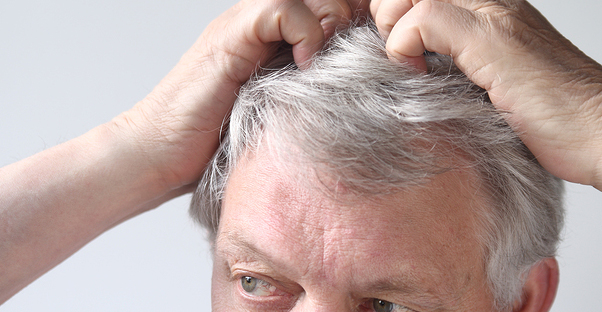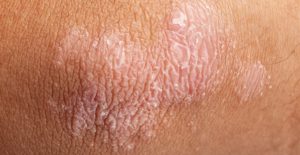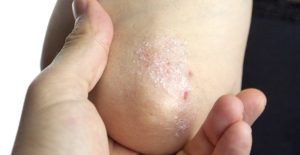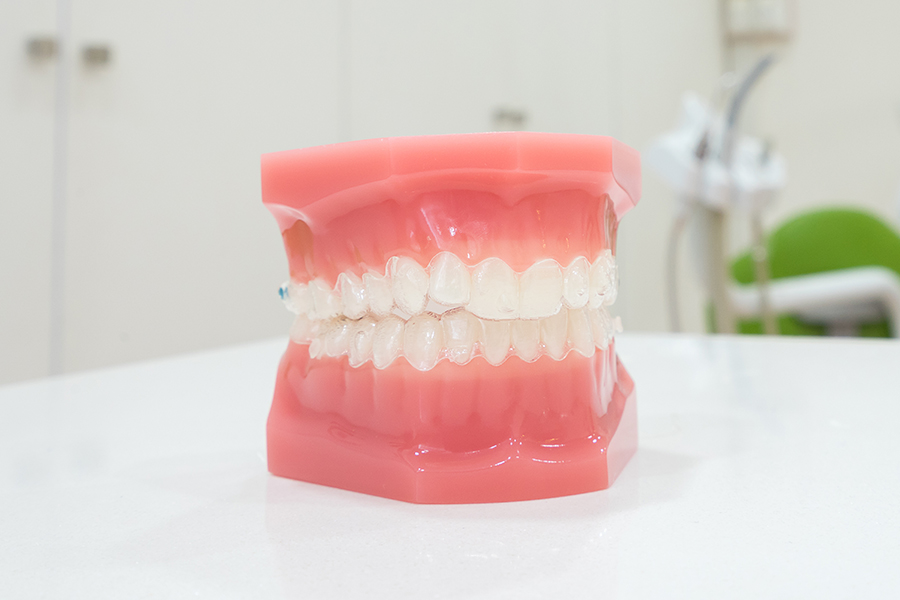Scalp Psoriasis Information

Scalp psoriasis is a common and uncomfortable condition that will cause reddish patches on parts or all of one's scalp. Like other forms of psoriasis, the exact cause of scalp psoriasis is not known, but it is believed to be caused by an abnormally in the immune system that makes skin cells grow at a rapid pace, resulting in the reddish and whitish patches. Those whose family has a history of psoriasis are more likely to contract scalp psoriasis.
Symptoms of Scalp Psoriasis
A mild case of scalp psoriasis can often go unnoticed as only small parts of the skin will have scaling. Those who suffer from a more severe case of scalp psoriasis will notice it, and it affects everyday life, sometimes dramatically. The reddish plaques of skin can clump and become very noticeable to people; scalp psoriasis can be extremely embarrassing and can cause low self-esteem, especially because of the dandruff-like flakes that will fall from the scalp and onto clothing and other personal items.
But apart from the aesthetics, the red and white scaly skin can cause severe itching and extreme discomfort. The itching scalp will not be pleasant and will keep the carrier very occupied as he or she scratches at it. Everyday activities such as sleeping, studying or even eating can take on more difficulty if the itch from scalp psoriasis is persistent. Severe lesions force intense scratching and an overall rough treatment of the scalp, along with stress brought on from the condition. Lesions can also cause temporary hair loss until the condition clears.
Scalp psoriasis and seborrheic dermatitis, another condition that causes itchy scalp, are often mistaken, as it is difficult to differentiate between the two. Psoriasis of the scalp often produces thicker scales and is much more persistent and more difficult to treat than seborrheic dermatitis.
Treatment of Scalp Psoriasis
The most common defense of scalp psoriasis is topical treatment that includes shampoos, gels, oils and other ointments that help the condition. While some treatments are available over-the-counter, most will be prescribed by a dermatologist. In order for results to happen, one must thoroughly apply the topical psoriasis treatment to the affected areas of the scalp. Lazily applying topical shampoos or gels onto the hair without reaching the scalp will have no influence on the psoriasis. So when applying treatment, center your attention away from the hair and more on the scalp.
The process of treatment varies from person to person, but one must follow the orders of his or her dermatologist when treating the condition in order for the lesions to start dissipating. This can take up to eight weeks or so. Once the condition clears from treatment, one can continue to shampoo their hair daily or at least twice a week, using medications that help to prevent re-occurrence of the condition. While scalp psoriasis is no fun, it doesn't have to be a devastating condition if you happen to have it.








